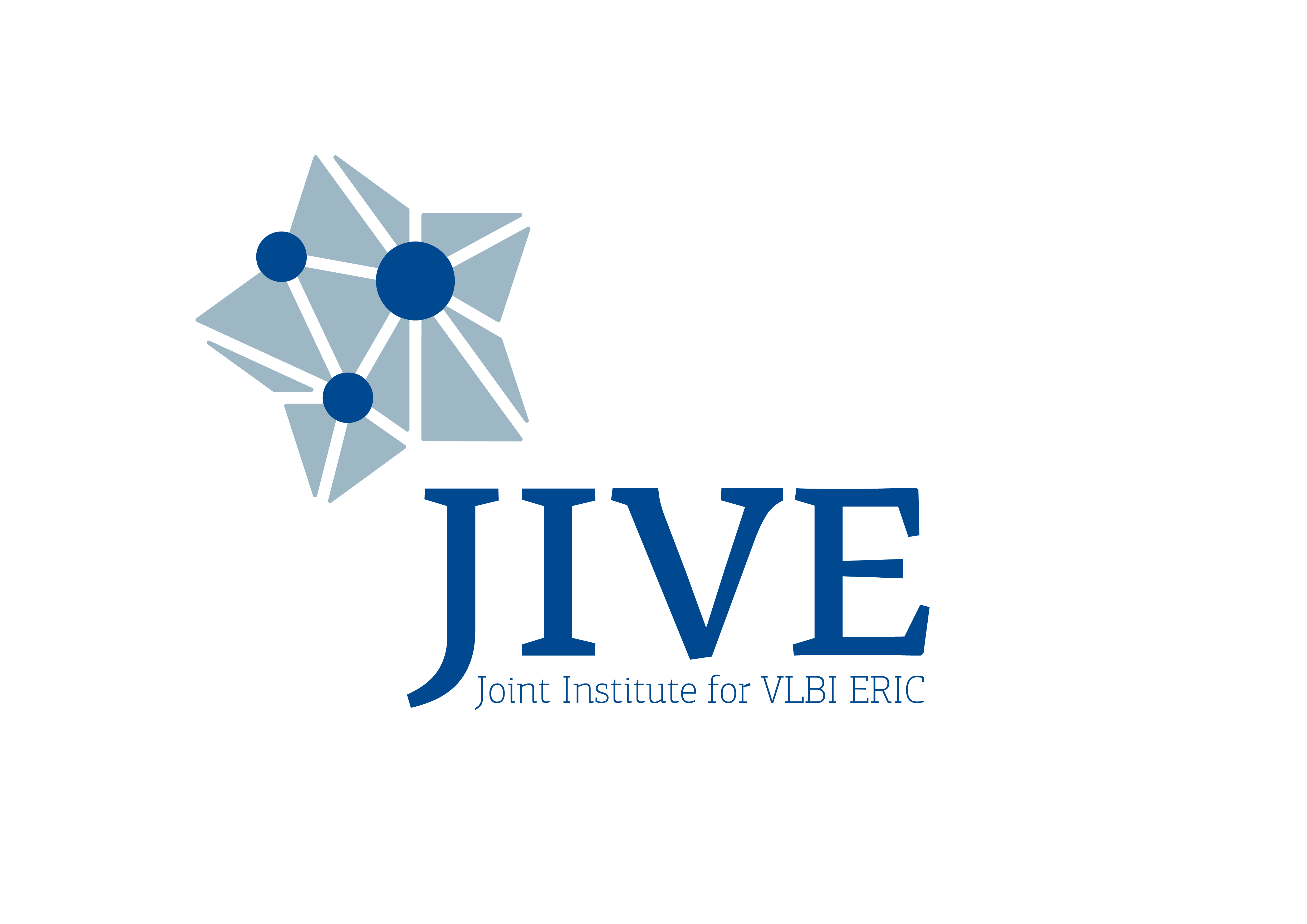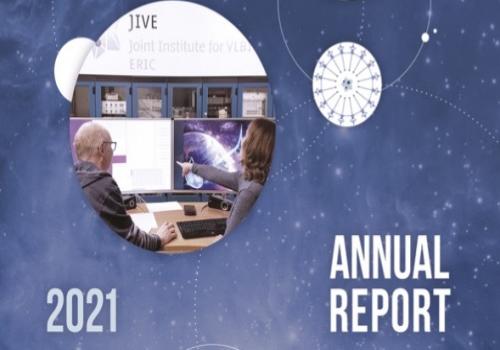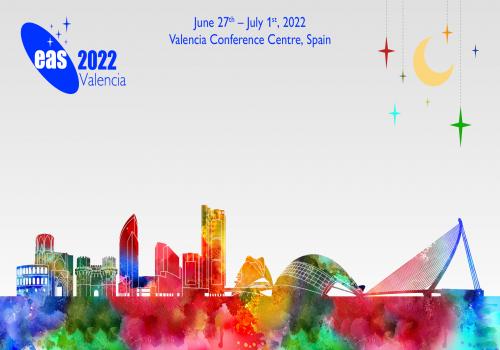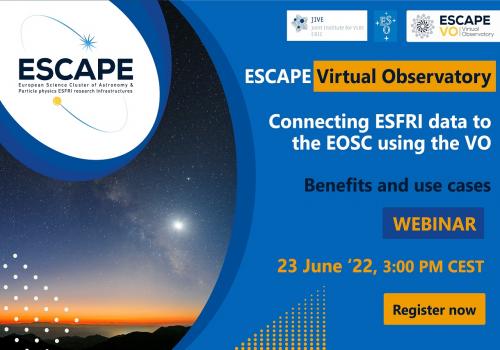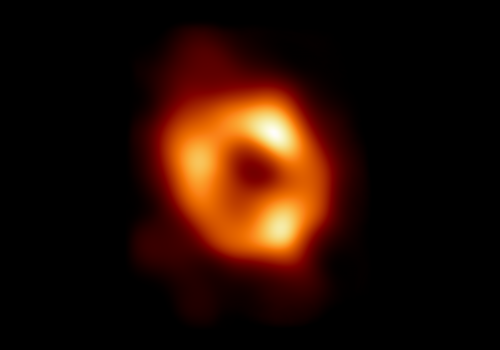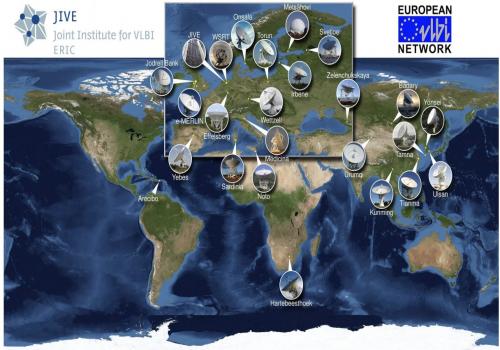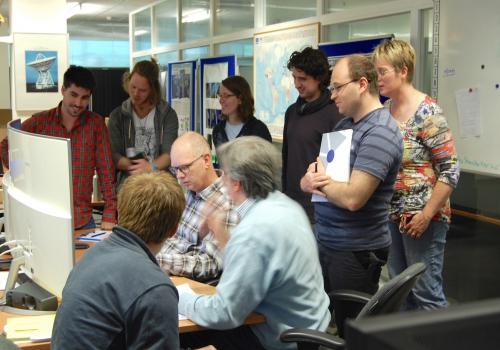News
JIVE Annual Report 2021 Now Available
30/06/2022
The JIVE Annual Report 2021 is now available. It presents a summary of JIVE’s many activities throughout the year.
Huib van Langevelde featured at exhibition at the Rijksmuseum Boerhaave
29/06/2022
On 23 June 2022, the Dutch Minister of Education, Culture and Science Robbert Dijkgraaf opened the newly furnished Big Questions theme room of the Rijksmuseum Boerhaave in Leiden, the Netherlands. The new content of the exhibition features an interview of JIVE Chief Scientist and Event Horizon Telescope (EHT) Collaboration Project Director Huib van Langevelde, who also participated in the opening, giving a keynote address.
JIVE and the EVN at the EAS 2022 Meeting
24/06/2022
From 27 June to 1 July 2022, JIVE and the European VLBI Network (EVN) will be participating as exhibitors at the European Astronomical Society 2022 (EAS 2022) Annual Meeting, the largest conference of European astronomy, which will be held in Valencia (Spain).
Webinar "ESCAPE VO | Connecting ESFRI data to the EOSC using the VO"
16/06/2022
On 23 June 2022, the H2020 ESCAPE Project is organising the online webinar "ESCAPE VO | Connecting ESFRI data to the EOSC using the VO", including the participation of Marjolein Verkouter, JIVE Head of Technical Operations and R&D. Participation on the webinar is free but registration is mandatory.
Next Generation Space VLBI (ngSVLBI) Workshop 2022
13/06/2022
The third edition of the Next Generation Space VLBI workshop (ngSVLBI-2022), co-organised by JIVE and ASTRON in Dwingeloo (The Netherlands) will be held on 17-19 October 2022. Registration is now open and the deadline for abstract submission is 15 July 2022.
EVN Biennial 2019-2020 Report is now available
25/05/2022
The European VLBI Network (EVN) Biennial 2019-2020 Report is now available.
Astronomers reveal first image of the black hole at the heart of our galaxy
12/05/2022
Astronomers have unveiled the first image of the supermassive black hole at the centre of our own Milky Way galaxy. This result provides overwhelming evidence that the object is indeed a black hole and yields valuable clues about the workings of such giants, which are thought to reside at the centre of most galaxies. The image was produced by a global research team called the Event Horizon Telescope (EHT) Collaboration - including participation in the Netherlands of astronomers and technicians from University of Amsterdam, Radboud University, Leiden University, University of Groningen, JIVE ERIC and ASTRON - using observations from a worldwide network of radio telescopes. The image has been unveiled by JIVE Chief Scientist and EHT Project Director Huib Jan van Langevelde at the European Southern Observatory Headquarters in Garching (Germany), one of the press conferences organised by the EHT Collaboration around the world.
The EVN/JIVE Newsletter #62 is published
02/05/2022
The May 2022 issue of the EVN/JIVE Newsletter is now available and includes relevant updates of the European VLBI Network (EVN).
Join the first online EVN Users' Training Event
29/04/2022
On 11 May 2022, JIVE organises the first online EVN Users' Training Event with the aim to support first-time users of the network. EVN Support Scientists will guide participants through the different steps to allow them to prepare and submit an observing proposal as well as the scheduling of observations. Participation on the webinar is free for everyone but registration is mandatory.
European VLBI Network Call for Proposals is open
29/04/2022
Observing proposals are invited for the European VLBI Network (EVN). The deadline for proposal submission is 1 June 2022 at 16:00 UTC. See the Call for Proposals text here for full information about the call and how to submit proposals.
